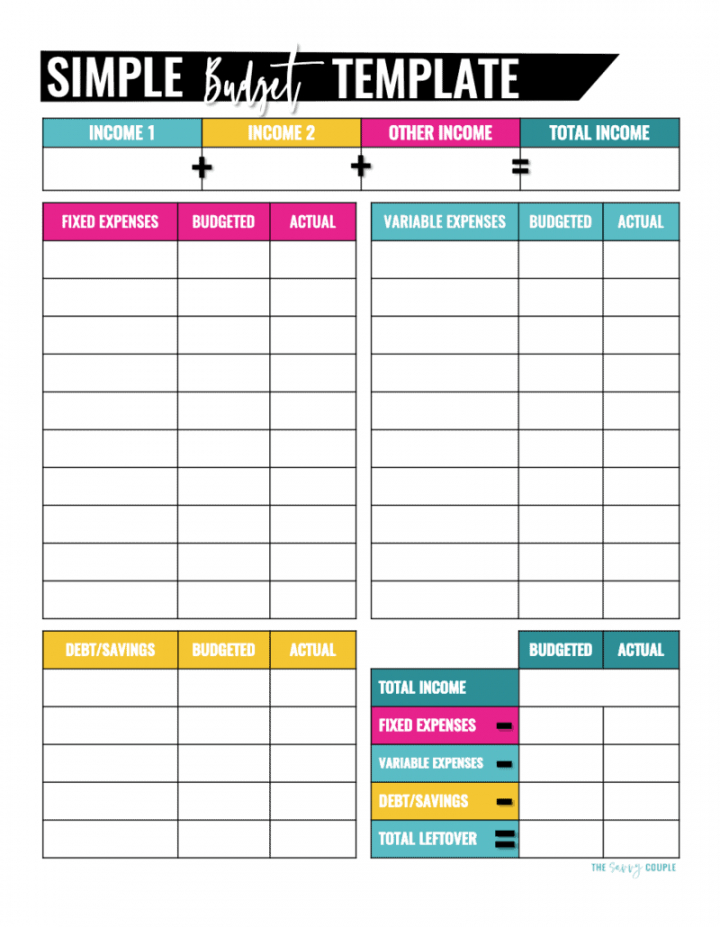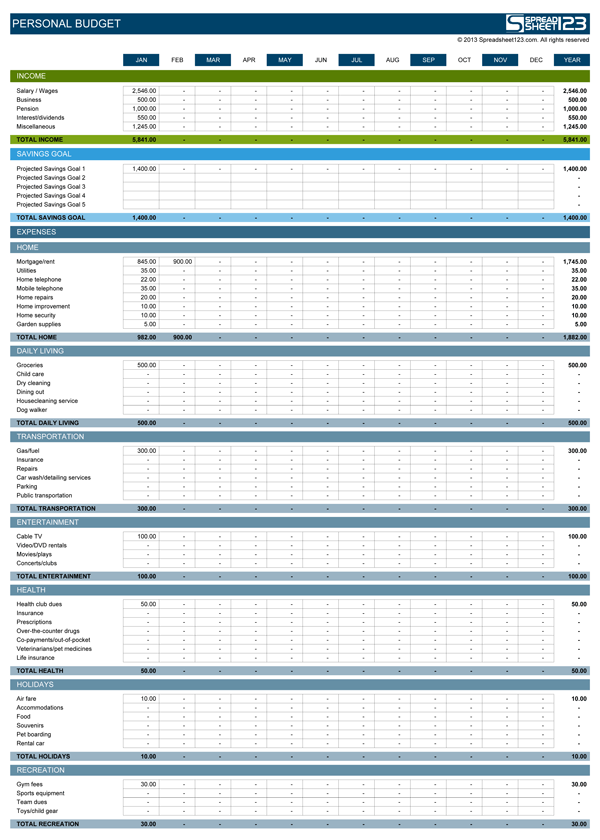


The end here is to improve your financial habits. After one week or one month, evaluate your budget and spending habits. Now that you’re filling in your daily expenses, you need to understand that that’s only a means to an end.

Also, divide these expenses into cash and bank debits for even more accuracy. Documenting this daily will ensure you don’t forget any item, which will in turn give you accurate numbers at the end of the week or month – depending on the timeframe you want to follow. This is because there’s only so much the brain can take. I’ve found that what works best is to fill this in daily, or at the latest early the next day. Here, you have to fill in every penny spent on a daily basis in your budget. This is different from the previous point where you estimate what you used to spend on an item. However, delaying your feeding, debt repayment (if any), rent or light bills will ultimately end in tears… 4.
Creating a personal budget article movie#
For example, this can include monthly movie dates, travel plans, etc and they can be delayed. Discretionary expenses will include things that are important to you but that are not as important as your fixed expenses. Separate your expenses into fixed and discretionary categoriesįixed expenses will include things like transportation, debt, feeding, rent, light bill, etc. When I created my first budget, my estimated expenses were higher than my income so I knew I had to adjust. If when you’re done, your expenses are way less than your income, then you’re at a good stop. This is a crucial step in creating a budget – calculating the difference between your income and expenditure. Calculate the difference between your income and expenditure This is to determine the average monthly costs for each expense. Leave nothing out, not even what you spend N5 on (if there’s any such item available in this x3 economy.)Īfter making the list, put in an estimate of what you think you spend on each item. Your budget should include EVERYTHING you remember that you normally spend money on. However, if you earn only from your salary, then that’s fine, state just that. List EVERYWHERE you’ve made money from in the past few months – side business, monthly vex money from parents (assuming you’re a trust fund kid), etc. If you’re a 9 to 5er, your salary is one income stream to take down. When starting, I’ll advise you don’t create a budget for more than one month, anything more can be overwhelming. I’ll advise you don’t use a pen and paper for this because the day it goes missing, you’ll have to start over. Some people run from the very idea of spreadsheets but a tool that has rows and columns where data can be arranged is just fine. Choose a tool that’s easy to use and accessible. I’m tempted to type “ duh” because this is an obvious step right? There’s no way to have a budget without actually creating “the place” you’ll detail your income and expenses. Create a budget spreadsheet or use a budgeting app


 0 kommentar(er)
0 kommentar(er)
